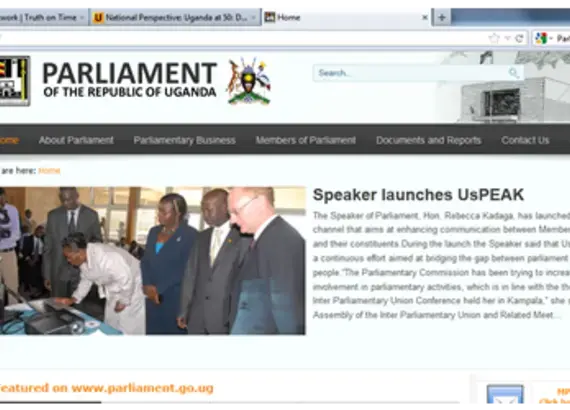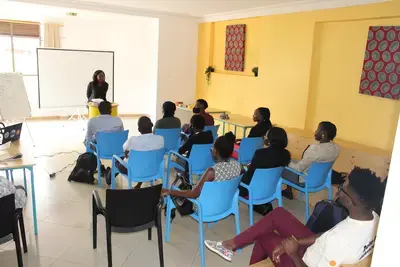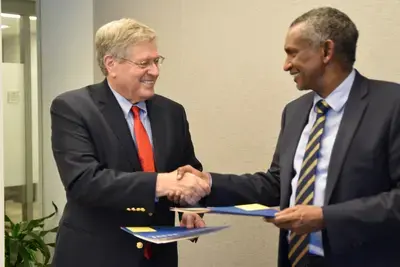
Success Story
“UsPeak” Puts Ugandans In Touch With Their Representatives
In a country of about 35 million people, keeping up with what’s on people’s minds can be a herculean task for the 375 members of the parliament in Uganda, where there have been significant changes in government in recent years.
In 2005, Ugandans voted to restore a multi-party political system through a constitutional referendum process. As a result, Ugandans are still figuring out what they want from their lawmakers, and in turn, members of parliament (MPs) are still learning the right mix of legislative work and constituent-focused casework to keep voters content and engaged. Not all have been successful. Since 2005 there has been a 65 percent turnover rate in parliament as voters have cast out MPs they didn’t think were serving them well.
Often, representatives make grand promises to voters during the campaign season to fix local problems but lack follow-through after an election. Many citizens rarely see their representatives outside of elections, and most don’t know how to contact them. Though Ugandans want to be involved in the political process, citizens have very few avenues through which they can engage with the parliament or the national government.
To help remedy these problems, the Parliament of Uganda and NDI, in partnership with the European-based e-governance NGO, Gov2U, developed UsPeak, an innovative system for citizens to communicate with their representatives and help lawmakers respond to citizens’ needs.
 Tim Lwanga, chair of parliament’s Budget Committee, and Rebecca Kadaga, speaker of the Ugandan Parliament, at the UsPeak launch on Aug. 14.
Tim Lwanga, chair of parliament’s Budget Committee, and Rebecca Kadaga, speaker of the Ugandan Parliament, at the UsPeak launch on Aug. 14.“This initiative…[will] be effective in meeting the challenge of representation, accessibility, availability but most importantly, responsiveness,” said Rebecca Kadaga, speaker of the Ugandan Parliament, at the UsPeak launch on Aug. 14.
The system is designed to help MPs gather information from constituents, organize reports and set priorities for responses, while recognizing the challenges they face, such as limited resources and few or no full-time staff.
The tool allows constituents to share their views and request information on issues from MPs by text message, voicemail or by leaving a message with the UsPeak call center. UsPeak then aggregates the reports and requests by issue, which allows MPs to track the information, including number of contacts and types of issues, and compare them to the number of messages received by other lawmakers on these issues.
Each MP has sole access to his or her inbox, which sorts the messages into three categories: opinions, requests for information and requests for action. The system allows MPs to mark the cases as pending or closed, so they can track the casework in their districts. The Web-based tool permits MPs to stay in touch with their constituents anywhere an Internet connection is available.
The UsPeak system will be thoroughly tested for six months before the Parliamentary Commission, chaired by the speaker and responsible for the administration of parliament, decides whether to provide the system to MPs in all constituencies.
As Tim Lwanga, chair of parliament’s Budget Committee, said, “This system is providing, first and foremost, communications capacity for us, as MPs, to help us keep in constant communications with our constituents. Where I come from, in the Ssese Islands [on Lake Victoria], about 54 of which are inhabited, it’s almost impossible to communicate with everybody.”
Published Aug. 16, 2012



